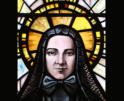
Culture
'our country is at war; our Nation therefore needs us all ... so up from our knees!'
April 6, 2017, will mark 100 years since the United States declared war on the German Empire, officially entering World War I. It was also Holy Week of that year, with Easter landing on April 8, but Cardinal William Henry O'Connell chose to pause and address Boston Catholics on the events which had transpired.
Cardinal O'Connell was in Europe three years earlier when on June 28, 1914, the Archduke Franz Ferdinand of Austria was assassinated. With tensions rising between nations, Cardinal O'Connell hastened his return home, departing on July 29 aboard the German steamship Cincinnati, and was at sea when the war broke out in Europe. The "History of the Archdiocese of Boston" describes how "the latter days of the voyage were an exciting and perilous time, as the ship zigzagged her course, muffled her lights, and sped blindly through darkness and fog to evade British cruisers that were searching for her." The cardinal reached home safely on Aug. 8.
While European nations were dragged into the war one by one, President Woodrow Wilson declared the United States a neutral party, and urged American citizens to "be impartial in thought, as well as action." Cardinal O'Connell echoed these sentiments to Boston Catholics while at the same time concerning himself with the welfare of those affected by the war. Oct. 4, 1914, was declared Peace Sunday across the nation, and he urged parishes in the Archdiocese of Boston to participate, delivering sermons on "The Blessings of Peace." He also organized relief funds, sending aid to Belgium and Poland which were both devastated within the first few months of the war.
While maintaining a position of peace and reconciliation, in the few months leading up to the United States entering the war, Cardinal O'Connell began to prepare for the worst. He declared "that in the event of war all the societies and agencies connected with the Archdiocese would be placed at the disposal of the Government." He also surveyed services offered by the Catholic Charitable Bureau to see how they could be of service.
Following the declaration on April 6, Cardinal O'Connell's address called for unity and action. He opened stating "there is but one sentiment permissible to-day -- absolute unity." He continues "our country is at war; our Nation therefore needs us all... so up from our knees!" And, finally, closing with "set us hasten now to act. We have spoken enough."
In the immediate aftermath, Cardinal O'Connell followed through on his earlier remark, offering the government the use of Catholic hospitals for the military, though it was refused. His other activities included attending rallies to promote the sale of Liberty Bonds and visiting with the troops, providing them rosary beads and prayer books. One of his most notable visits was to Fort Devens in June 1918, which saw him celebrate Mass for 5,000 Catholic servicemen.
On Nov. 11, 1918, an armistice agreement was signed with the German Empire, bringing a halt to the fighting. The following year, delegates from nations around the world would arrive in Paris to discuss the terms for peace. Like many others who prayed for this peace to last, it was not to be, and Cardinal O'Connell would live to lead the Archdiocese of Boston through most of the Second World War as well.
THOMAS LESTER IS THE ARCHIVIST OF THE ARCHDIOCESE OF BOSTON.
Recent articles in the Culture & Events section
-
Scripture Reflection for April 14, 2024, Third Sunday of EasterDeacon Greg Kandra
-
St. Helena's House is established in the South EndThomas Lester
-
Is this synodality?Russell Shaw
-
Poking the hornet's nest of IVFFather Tadeusz Pacholczyk
-
A eucharistic word: MissionMichael R. Heinlein


















